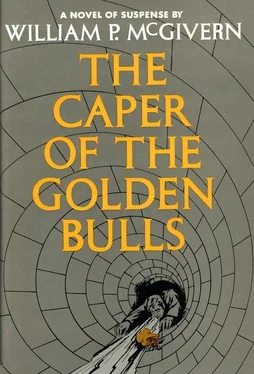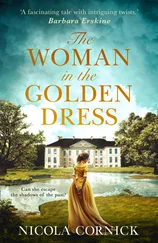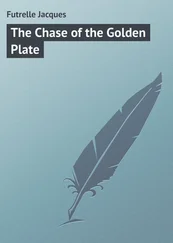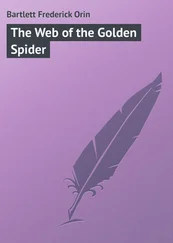Peter lunched late at the Queens. He had a fine meal. Prawns, paella, lamb chops, and assorted cheeses, which he funnelled down with the aid of a half-bottle of Banda Azul and several brandies. Then, as the sun and his spirits began to sink, each inevitably and irrevocably, he paid the cheque and went off to collect his car.
The standards and guidons of historic regiments sang in the breezes above the ramparts of the Rock. On a cricket pitch near O’Hara’s Battery, a sergeant-major shattered the air with furious roars at a platoon of drilling soldiers.
Peter drove with outward composure past landmarks whose names rang with the march of empire; the Bastion of Orange, Ragged Staff, and St. Jago’s Barracks but his thoughts were not of cavalry charges and riotous natives, but of customs officers a mile or so ahead, with their neat uniforms and white gloves and X-ray eyes.
The barriers were down at the airfield. He waited for a BEA. jet to come in and land, then drove across the runway and joined the tail-end of a queue of cars and trucks waiting to be checked through into Spain.
In another line were labourers, burrows, horse-drawn wagons, tradesmen pushing handcarts.
The two lines came together as they neared the customs point. Peter cut his engine and studied the officers who were examining luggage and parcels in the cars ahead of him. Sometimes it was possible to sense their mood and to guess at the probable intensity of their inspection.
On occasion this amounted to a smile and a casual wave in the direction of Spain. But today things looked serious. Tourists were being sent with their luggage into the offices that adjoined the checkpoint.
Labourers were emptying rucksacks on to the ground. White-gloved hands poked into burlap bags slung over burros, delved into suitcases and valises, fingered and threaded their way through the contents of bundles and blanket rolls.
Peter spotted his tinker in the line opposite him. The old man was advancing on the customs point in noisy stops and starts; when he braked his wagon the pots and pans hanging above the work bench banged together like cymbals; when he shoved it forward they set up another tinny clamour, and the water in the wooden tub sloshed over the sides and made black patches in the yellow earth.
The old man saw Peter and smiled widely at him. They were abreast of one another now, not ten feet apart. The tinker waved at Peter. Peter looked away. He could feel his heart pounding.
“Senor! Senor!”
Peter gave him a fleeting smile to quiet him. The old man chuckled, and winked at him.
An officer came over to Peter’s car.
“You have any firearms? Whisky? Cigarettes?”
“No, I don’t.”
“The old man knows you, eh? Please open your briefcase.”
“Yes, he came up to my villa last week to sharpen the knives. He’s a good man. Very honest and industrious.”
“The briefcase, please.”
“Yes, yes, of course.”
Another officer was inspecting the tinker’s wagon, peering into pots and pans, gingerly picking over a tray full of dull and broken knifes.
“These crackers and cans of milk? They are for your children?”
“No, they’re for me.”
The officer looked at him sceptically.
“You like such food?”
“Well, it’s not a question of liking it. I’m trying to lose some weight, you see.”
The officer shrugged. “We will lose it all when we die. Why hurry?” He examined the walkie-talkies with more interest. “And these?”
“They are radios,” Peter explained their use, and the officer copied down their serial numbers.
“Have a good trip, senior.”
“Thank you very much.”
In the opposite line the tinker grinned slyly at Peter. The officer who had been looking over his wagon was apparently satisfied. He stepped back and waved the old man on to Spain.
Peter slowly let out his breath. In the ultimate analysis, he thought, everything hung always on slender threads of chance; one could try to anticipate all eventualities, erect the stoutest possible barricades against the unforeseen or unexpected, and be prepared for any conceivable fall of the dice and all to no avail.
For there were strains one couldn’t predict, stresses one couldn’t imagine. And these had a maddening way of adding their weight to considerations at precisely the wrong moment, at exactly the moment, in fact, when the gossamer threads of chance were already stretched to the breaking point.
Fate had an inexhaustible supply of booby traps, an infinite variety of sneak punches. She (or was it he?) was always waiting to let you have one in the groin or behind the ear. Cleverness was only half of it; you had to be lucky.
But now Peter’s luck seemed to be holding strong. The tinker was on his way, pushing past the customs officer, with all his pots and pans banging a cheerful farewell to the Rock. Peter said a silent prayer and started his car.
And it was then that all the threads of chance began to snap!
A jet flew over screaming like a banshee. Dogs raced away from the noise in mindless circles, eyes rolling, ears flat. The jet banked and a gust of wind intensified the squeal and hiss of ruptured air. A burro brayed deafeningly, broke away from his master, lashed out with his heels at anyone who came near him. He backed up to the tinker’s wagon, kicking at it savagely, and one of his bony, rock-hard hooves splintered a stave in the wooden tub bolted to the side of the rig.
Peter watched in horror as water began to trickle from the cracked tub; he could not have been more dismayed if his own life’s blood were spilling out on the ground at the custom officer’s feet.
The level of the water in the tub dropped slowly and steadily, revealing pots and pans first, then an assortment of knives, and finally the grease-smeared tools he had acquired from Mr. Shahari.
The customs officer looked at them with a frown, more puzzled, it seemed, than suspicious. Peter silently cursed the old tinker who stood frozen with apprehension, a weak and guilty grin flickering through his mossy beard. Move! Go! He tried desperately to catch his eye, but the tinker was staring at the customs officer like a child caught with his hand in a cookie jar.
Slowly, and with an air of surgical fastidiousness, the officer drew off his immaculate gloves and tucked them under his belt. He had not quite reached a decision, he was not thoroughly committed, Peter realised with a flare of hope; his ferret-like instincts had not yet caught a whiff of quarry. He shrugged and glanced at one of his incurious colleagues, inviting the officer’s attention to the dully glittering objects in the wooden tub. The second officer frowned and strolled over to the wagon, pulling off his gloves.
Peter sighed and raised his eyes to heaven. A sudden, accelerating roar sounded behind him; and Peter gasped as he flicked a glance at his-rear-vision mirror. “No!” he shouted, vainly and fruitlessly, and threw himself to one side.
There was a bucking, sickening crash. The impact flung him against the dashboard, and he collapsed to the floor as batteries of brilliant lights exploded painfully inside his head.
Dimly he heard squalls of agitation and confusion howling outside his car. There were shouts, screams, brayings, barkings. Someone jerked open the door that partially supported his weight, and Peter fell out of his car on to the concrete ramp of the customs point.
A voice said tearfully: “I must have stepped on the accelerator instead of the brake. I’m so terribly sorry.”
“Are you hurt, senora?”
“No, no. But I deserve to be. The fool that causes the trouble always gets off without a scratch.”
“You’re too hard on yourself, senora. Machinery isn’t infallible. It makes mistakes, too.”
Читать дальше












